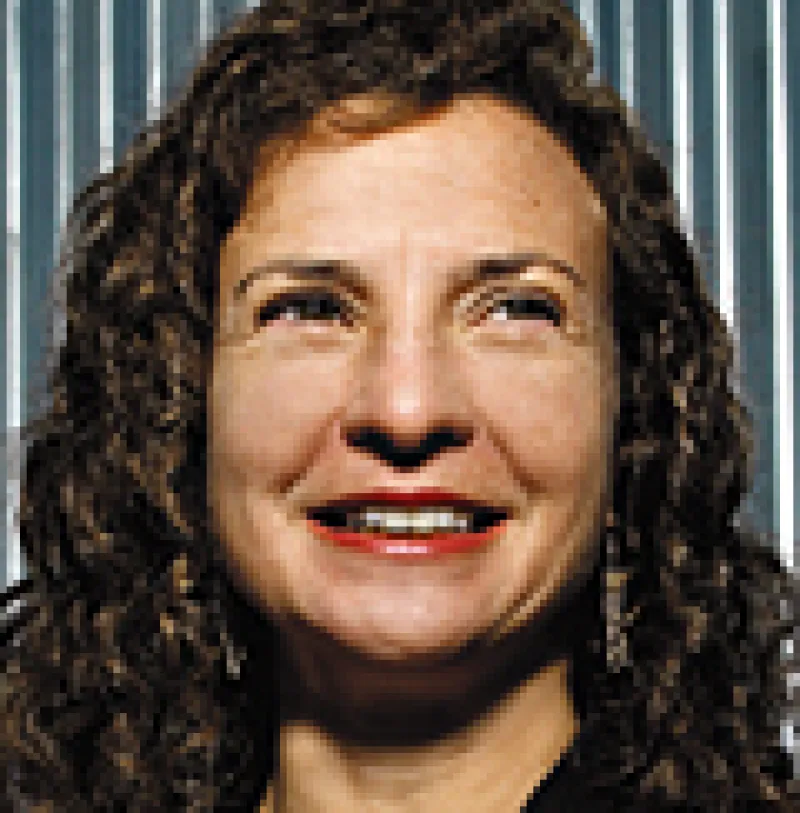More bad news for Wall Street? Markets are in tatters, bankers are being let go, and deal flow is down to a trickle in most areas. Now comes a brace of newly minted firms marketing themselves to companies and private equity shops as independent advisers to help them refine sales pitches to investors — and pick underwriters. The role pits them against investment banks, which must sometimes share their fees with these interlopers whose job is to make sure that underwriters work well together and to give advice that is truly in the issuers’ best interest.
The biggest and most active of this new breed of independent adviser is Solebury Capital Group, a pint-size broker-dealer headquartered on the Delaware River in New Hope, Pennsylvania, that has worked on more than 30 offerings. Started in 2005 by Alan Sheriff and Ted Hatfield, former heads of equity capital markets and equity syndicate for the Americas, respectively, at Credit Suisse First Boston, Solebury has assembled a team of former capital markets executives from prominent Wall Street firms. Typical clients include portfolio companies of private equity firms, from the Blackstone Group to Kohlberg Kravis Roberts & Co. to the Carlyle Group. Solebury’s most recent deal came on January 29, when it worked on the $920 million IPO of Trian Acquisition I Corp., a special-purpose acquisition company led by investor Nelson Peltz. It is also working with Gate Gourmet, an airline caterer owned by private equity giant TPG that is eyeing a public offering, sources say. (Solebury and TPG declined to comment, and calls to Gate Gourmet were not returned.)
Why would the world’s largest private equity firms need advice about taking a company public — especially when they have ample access to Wall Street’s top equity capital markets desks? “We do have substantial resources, but not ECM resources,” says Joan Solotar, senior managing director in the public markets group of Blackstone, which Solebury advised on last year’s initial public offering of Orbitz, the online travel site. “For us that is the expertise Solebury brings. It’s also a matter of manpower: They dedicate their team to our transaction. So while we are integrally involved, it’s akin to having several ECM experts as part of our team.”
Solotar, a onetime head of equity research at Bank of America, says Blackstone didn’t incur any additional costs as a result of hiring Solebury, since its fees came out of the underwriters’ pockets. “It’s not an additional fee to the issuer, but it is an additional resource,” she notes. “If you could have the talent of several former senior capital markets executives in addition to your underwriters, why wouldn’t you do that?”
Other independent advisers include Class V Group, a Portola Valley, California–based firm run by former equity research analyst Lise Buyer, and Financial Technology Partners, a San Francisco–based investment banking boutique led by former Goldman, Sachs & Co. banker Steven McLaughlin. Buyer was an Internet analyst at T. Rowe Price Associates before switching to the sell side at Credit Suisse First Boston, where she worked with technology banking maven Frank Quattrone, whose 2004 conviction on charges of obstructing a federal investigation was later overturned. Buyer left CSFB to work as a venture capitalist before becoming director of business optimization at Google. There she gained renown as the architect of its unorthodox IPO, in which shares were sold partly by auction in an effort to democratize the offering process. She started Class V last year and has worked with four clients so far, including 3PAR, a Fremont, California–based data storage concern that raised $105 million on NYSE Arca on November 15.
Independent advisers have some high-profile proponents, including Roger McNamee, a Silicon Valley fixture and co-founder of private equity firm Elevation Partners. McNamee says chief financial officers typically have little experience doing IPOs and are underprepared for working with investment banks, which end up controlling the process. “The issuer has been at an enormous disadvantage since the beginning of time. These people,” he says of the independent advisers, “are like Navy SEALs coming in to rescue a hostage.”
One reason to use independent advisers is the growing complexity of IPO transactions. According to data firm Dealogic, just 3 percent of U.S.-listed IPOs had more than one book runner in 1998. That percentage has grown every year since, to 51 percent last year. “In this day of multiple book runners, it’s very difficult to sort through the advice you get from different banks. Alan will distill down what he’s hearing and tell us what he thinks,” says KKR partner Craig Farr of Solebury founder Sheriff. Solebury has worked with KKR on at least eight deals involving six companies.
Allocating IPO shares can present a conflict for underwriters, who serve two clients at once. Issuers usually want a broad-based group of long-term shareholders who side with management. But investors like hedge funds may want to pick up shares on the cheap and flip them for a quick profit.
“There can be a tendency for investment banks to look after their best friends, and if those best friends happen to be all or predominantly hedge funds, you can end up with a situation where a book of demand is much more concentrated within that bank’s group of friends and a group of hedge funds than it would be otherwise,” notes Solebury’s John St. John, who started Salomon Brothers’ equity underwriting franchise in Europe before moving on to senior roles at Dresdner Kleinwort Wasserstein, Lehman Brothers, Commerzbank and Nomura Group. After leaving the sell side, St. John was a consultant for several European companies, including Lufthansa and France Télécom, on equity issuance, before joining Solebury at the beginning of this year to launch its London-based European practice.
St. John says that in the case of one deal on which he consulted before joining Solebury, the lead underwriters proposed premarketing to 50 or 60 investors. St. John pushed to broaden distribution to 1,050 accounts, which propped up the price and allowed the company to have less concentrated ownership. The stock rose 7 percent in the first three months after issuance and 23 percent in the first six months — outperforming the shares of its two main competitors.
Robert Long, CEO of Channel Islands–based Conversus Capital, a private equity fund of funds that got help from Solebury when it raised $460 million on Euronext Amsterdam in June, says Solebury’s detailed knowledge of different markets and firms helped it put together a first-class lineup of underwriters. Bear Stearns, for example, helped with investor contacts in Amsterdam, and Citigroup proved indispensable in Spain. “The business doesn’t all go, nor should it go, to the top three firms in the league tables. There’s a lot more to picking underwriters than that,” Long asserts.
Long says Solebury helped provide reality checks, identifying whether a Wall Street firm was putting its best syndicate and capital markets sales teams on the deal, or whether a bank’s retail network was likely to genuinely get behind the sale.
He adds that Solebury was especially valuable during the road show leading up to the offering — helping Conversus executives present their message clearly and determining when it was important for them to spend extra time with a particular group of investors. “I still use the simple, clear, thoughtful framing, phrasing and presentation that Alan and Ted helped us come up with,” Long says.
Conversus paid $23 million in underwriting fees, which were divided among the four underwriters and Solebury. Long would not say how much was given to each, though he says Solebury received less than the others. Solebury also worked on retainer and received a success fee, Long says. Co-founder Hatfield says Solebury’s fee arrangements vary but that it is not uncommon for fees to be subtracted from the underwriters’ cut.
Class V’s Buyer says she has not yet taken a cut of the underwriting fee pool, although she sees no reason she couldn’t start doing so. Instead, she takes a flat fee and company shares “so clients know that my interests are truly aligned with theirs and so no client pays more for a deal delayed by outside circumstances.”
Not surprisingly, the hiring of specialists like Class V and Solebury has ruffled feathers at a few of the underwriting firms. “It’s an interesting idea,” says the head of equity capital markets at one big underwriter, “but these guys aren’t in the markets every day, so they’re out of touch.”
Some capital markets executives are more supportive. “I think of it as constructive friction,” says Jeffrey Bunzel, head of Americas ECM at Credit Suisse and a former colleague and close friend of Sheriff’s. “They’re trying to perform a somewhat different function, and it can be to the mutual advantage of the parties. Competitive issues can be managed well, and Solebury can play an important role between the underwriters and the companies they’re working with.”
KKR’s Farr says that notwithstanding his own experience in capital markets, he finds it useful to work with Solebury. He can’t stay on top of the market as closely as a specialist can.
The fact that Solebury’s team includes so many veteran equities executives seems to help smooth over tensions. In addition to Sheriff, Hatfield and St. John, the team includes Victor Cohn, a former head of North American capital markets at UBS; Duff Anderson, former head of equity capital markets at Donaldson, Lufkin & Jenrette; and Kevin O’Reilly, former global head of equity capital markets at UBS. A recent addition is David Earling, a former Goldman Sachs managing director who helped the firm design its pioneering GSTrUE 144A trading platform, a proprietary exchange meant to allow privately held companies to raise equity while avoiding the constraints of public markets.
Buyer’s experience is more varied than that of the ex-ECM heads at Solebury. She takes pride in having been through the IPO process as an issuer, an investor, a venture capitalist and a sell-side analyst. She, like Solebury, helps her clients choose underwriters, but she also spends time discussing the need for issuers to rein in the hype that underwriters use to sell an IPO, so investors aren’t disappointed in the months and years that follow.
“Lise acted almost as a referee to make sure that the bankers didn’t completely override from a marketing standpoint how we wanted to pitch the story,” says Adriel Lares, 3PAR’s CFO.






